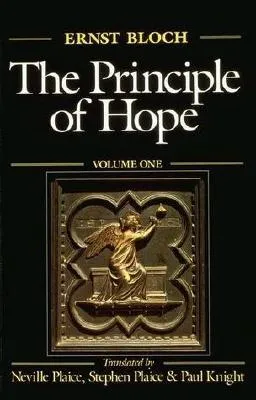The Principle of Hope
By (author): "Stephen Plaice, Neville Plaice, Paul Knight, Ernst Bloch"
Publish Date:
1954
AsinThe Principle of Hope
Original titleDas Prinzip Hoffnung
"The Principle of Hope" is one of the great works of the human spirit. It is a critical history of the utopian vision and a profound exploration of the possible reality of utopia. Even as the world has rejected the doctrine on which Bloch sought to base his utopia, his work still challenges us to think more insightfully about our own visions of a better world. "Ernst Bloch's "Principle of Hope" is one of the key books of our century. Part philosophic speculation, part political treatise, part lyric vision, it is exercising a deepening influence on thought and on literature. . . . No political or theological appropriations of Bloch's leviathan can exhaust its visionary breadth." -- George Steiner " "The Principle of Hope" is one of those all-about-everything books characteristic of German culture during the last 150 years. But unlike its direct predecessor, Oswald Spengler's "The Decline of the West," Bloch's magnum opus. . . reverses Spengler's world-historical scheme by turning "Weltangst" . . . into hope.' In this placing of hope' at the center of a history, an anthropology, and a phenomenology of mankind lies the originality of Bloch's undertaking." -- J. P. Stern, The New Republic "The Principle of Hope" is published in three volumes: Volume 1 lays the foundations of the philosophy of process and introduces the idea of the Not-Yet-Conscious - the anticipatory element that Bloch sees as central to human thought. It also contains a remarkable account of the aesthetic interpretations of utopian "wishful images" in fairy tales, popular fiction, travel, theater, dance, and the cinema.
